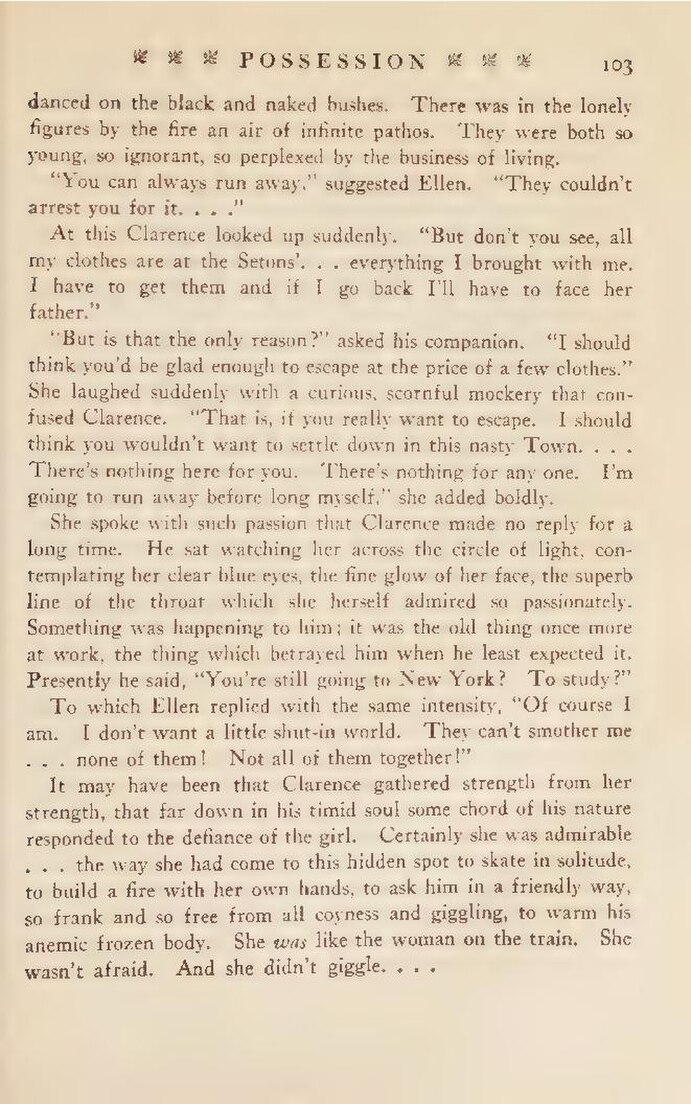danced on the black and naked bushes. There was in the lonely figures by the fire an air of infinite pathos. They were both so young, so ignorant, so perplexed by the business of living.
"You can always run away," suggested Ellen. "They couldn't arrest you for it. . . ."
At this Clarence looked up suddenly. "But don't you see, all my clothes are at the Setons' . . . everything I brought with me. I have to get them and if I go back I'll have to face her father."
"But is that the only reason?" asked his companion. "I should think you'd be glad enough to escape at the price of a few clothes." She laughed suddenly with a curious, scornful mockery that confused Clarence. "That is, if you really want to escape. I should think you wouldn't want to settle down in this nasty Town. . . . There's nothing here for you. There's nothing for any one. I'm going to run away before long myself," she added boldly.
She spoke with such passion that Clarence made no reply for a long time. He sat watching her across the circle of light, contemplating her clear blue eyes, the fine glow of her face, the superb line of the throat which she herself admired so passionately. Something was happening to him; it was the old thing once more at work, the thing which betrayed him when he least expected it. Presently he said, "You're still going to New York? To study?"
To which Ellen replied with the same intensity, "Of course I am. I don't want a little shut-in world. They can't smother me . . . none of them! Not all of them together!"
It may have been that Clarence gathered strength from her strength, that far down in his timid soul some chord of his nature responded to the defiance of the girl. Certainly she was admirable . . . the way she had come to this hidden spot to skate in solitude, to build a fire with her own hands, to ask him in a friendly way, so frank and so free from all coyness and giggling, to warm his anemic frozen body. She was like the woman on the train. She wasn't afraid. And she didn't giggle. . . .
